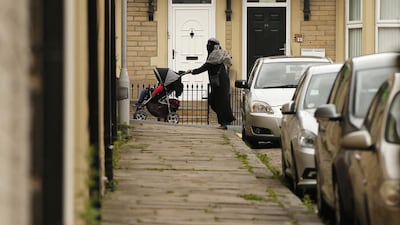A doctor running England's first blood donation centre to help identify Covid-19 treatments issued an urgent appeal for Muslim volunteers.
The centre, which will focus on Muslims and launch in the northern city of Bradford on Friday, is seeking those who were infected with the coronavirus but experienced only mild or no symptoms.
Its research is backed by the local Muslim community, with leaders helping to distribute thousands of information leaflets and posters – translated into Urdu, Bengali, Gujarati and Punjabi – to members.
“Tragically, the virus’s impact has been worse in Bradford than virtually anywhere else in the country,” said James Morgan, an intensive care consultant and principal investigator for the genomics project at Bradford Teaching Hospitals.
"Through my work in intensive care, I've met many patients and their families who agreed to participate in this research to help others, at one of the most difficult times in their lives. They know that by taking part in the study, they're taking ownership of what's happened and can be part of the solution.
“Many of these patients were from South Asian and Pakistani backgrounds – that’s why we urgently need suitable people from these communities to join the study to provide a comparison. To date, we’ve recruited around 80 people but need more to sign up.”
Of the 46,000 people from Bradford who have contracted Covid-19, at least 3,000 were admitted to hospital and more than 1,200 lost their lives because of Covid-19.
“We’re issuing an urgent appeal for more volunteers from all walks of life – and, in particular, for people from South Asian and Pakistani communities – to come forward and register as soon as possible,” said Dr Kenneth Baillie, the study’s chief investigator.
“We need to find people who tested positive for Covid-19 but experienced either mild or no symptoms and did not require hospital treatment. For comparison purposes, it’s important that these volunteers are similar in age, gender and ethnicity to those people who were severely affected and hospitalised."
The unique GenOMICC Covid-19 study analyses the genes of people who have had the virus to discover why some experienced no symptoms while others became extremely ill.
The research is already contributing to the fight against Covid-19, with preliminary results helping to identify possible new treatments.
But scientists say more people are needed for the study to continue to make progress and generate meaningful results.
“The quicker this research can be completed, the faster we can solve the Covid-19 puzzle and protect vulnerable people,” said Prof Sir Mark Caulfield, chief scientist at Genomics England.
“Genetic research into Covid-19 is now playing an increasingly important role in our fight against the virus, enabling us to identify new forms of the virus and develop treatments.
“The findings from the GenOMICC Covid-19 study will improve the treatment, care and outcome for those most at risk, as well as helping to prioritise future vaccinations and lower the number of deaths.”
Genomics England works with the NHS to bring forward the use of genomic health care and research in Britain to help people live longer, healthier lives.
It is a ground-breaking area of medicine that uses people's unique genetic codes to help diagnose, treat and prevent illnesses.


